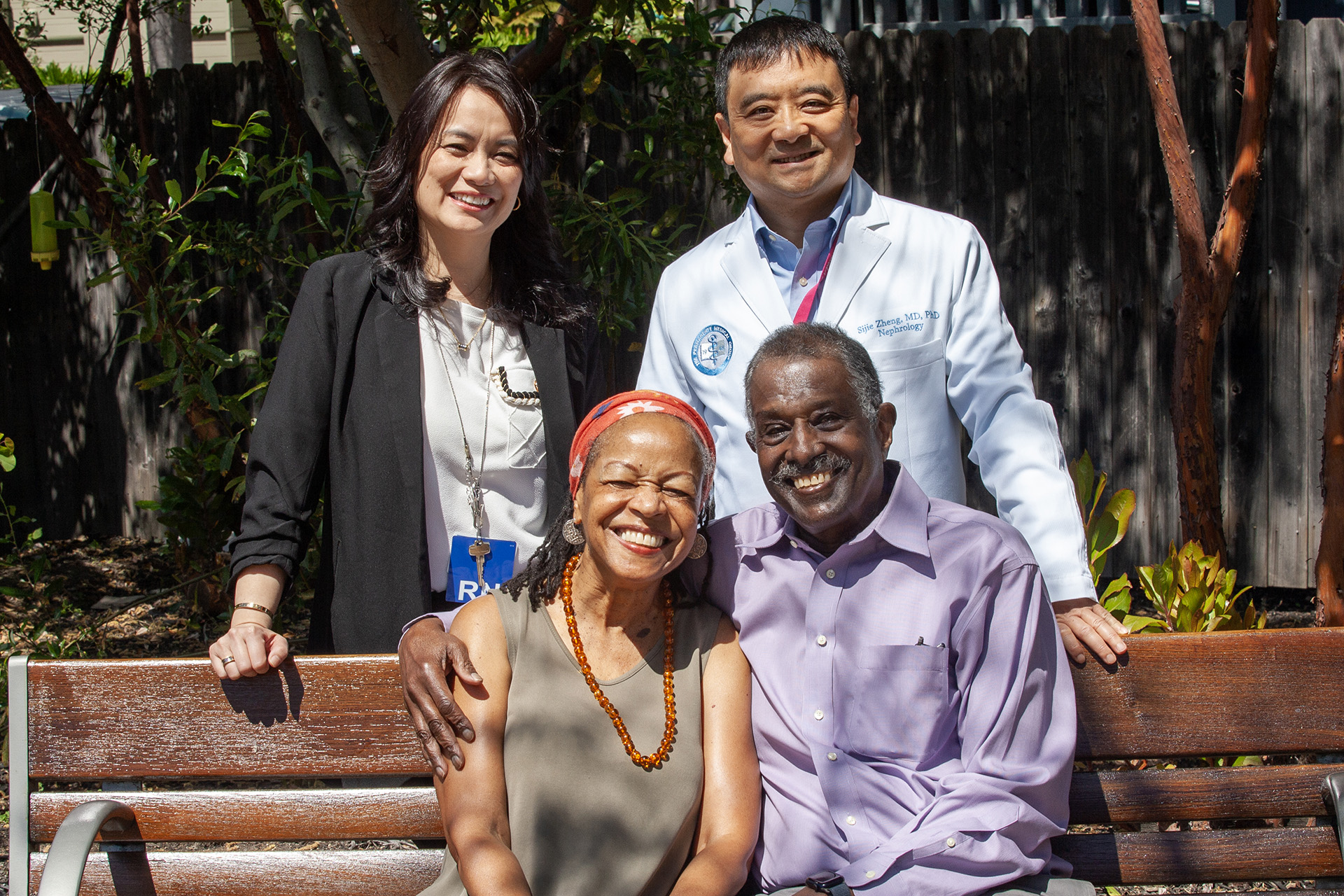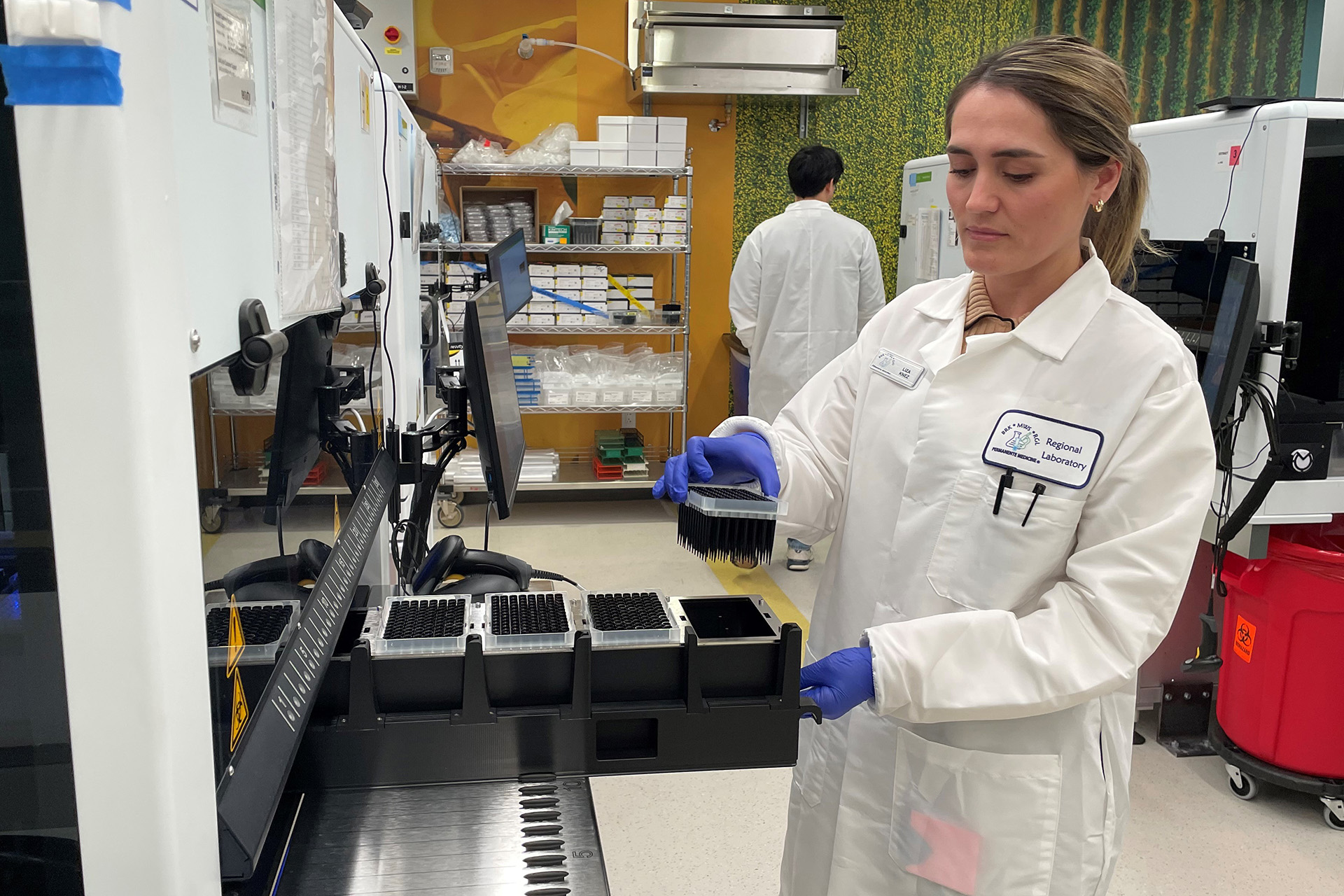Kaiser Permanente is making it easier and more convenient for cancer patients to uncover genetic information that can affect their treatment and possibly prevent family members from developing cancer.
The change started two years ago with ovarian cancer patients. Instead of making a separate appointment with the Genetics Department, ovarian cancer patients are offered genetic testing early in their regular cancer care. Usually, 5 to 15% of cancers are a result of a hereditary gene change.

“It’s so important to know because it can inform treatment, and results have a ripple effect for their family to raise awareness of their risks,” said Leslie Manace, MD, who leads medical genetics screening and tracking for Kaiser Permanente Northern California. “If family members have a gene mutation that puts them at risk, there are steps they can take to prevent disease. You can’t benefit until you know.”
Sixty-five percent of ovarian cancer patients across Northern Californian have opted for genetic testing this way, more than double the rate before the modified process.
“There’s no delay, no additional steps,” Dr. Manace noted. “The more steps you have, the more you lose people.”
Streamlining genetic testing for breast cancer
The adjusted ovarian genetic testing workflow was so successful, it is now being extended to breast cancer patients at Kaiser Permanente medical centers in Modesto, San Rafael, South Sacramento, and Oakland.
Tracy Chan, RN, is the breast care coordinator who helps breast cancer patients navigate their care at the Oakland and Richmond medical centers. As part of the intake process, she’s now discussing genetic testing.
“People are very receptive,” Chan said, adding that she believes more patients are getting tested earlier with this new approach.
For those patients who find out they have BRCA1 and BRCA2 gene mutations that increase a person’s breast cancer risk, they more readily decide to have surgery, she added.
“Patients who are getting testing are very grateful to know the results,” Chan said. “When the results are negative, they have peace of mind for their family.”
After Kathy Chow was diagnosed with early-stage breast cancer in April, she thought it was important to move forward with genetic testing for her niece’s sake. Chow, a 51-year-old Kaiser Permanente member in the Sacramento area, recognized that she doesn’t have her full family history because her dad was adopted.
If family members have a gene mutation that puts them at risk, there are steps they can take to prevent disease. You can’t benefit until you know. Leslie Manace, MD
When the testing found she had a BRCA2 gene mutation, Chow said it reassured her about her decision to have a lumpectomy.
“Having the additional information informed me that I had a greater risk of it coming back,” she noted.
The goal is to adopt this streamlined genetic testing process for all new qualifying breast cancer patients such as Chow in the next few years. And there are plans to bring the same model to other cancers, such as colorectal and prostate.
“There are hereditary risks involved with these cancers, and there are so many people who have these cancers so it can affect so many people,” Dr. Manace said.
Kaiser Permanente to expand testing
While seemingly simple, incorporating genetic testing into cancer care or other specialties has been a challenge industry-wide. A recent Stanford study, which drew from California cancer registries, found that among more than a million patients with cancer, only 6.8% underwent an analysis for inherited gene changes after a cancer diagnosis.
Kaiser Permanente is well positioned to test more because of its long history with a robust genetics program and its integrated model, where all care and coverage are under one roof, Dr. Manace said.
“This is where we shine,” she said. “We(take care of) people for a long time, if not their whole lives, and we often cover whole families. We have the systems and incentives in place.”
Genetic testing at Kaiser Permanente is also being integrated with other specialties. For instance, ophthalmology is embracing the streamlined testing approach for patients with retinitis pigmentosa.
“We are taking the first steps toward a big paradigm shift in genetics,” Dr. Manace said. “Having genetic testing mainstreamed is the future.”





This Post Has 0 Comments